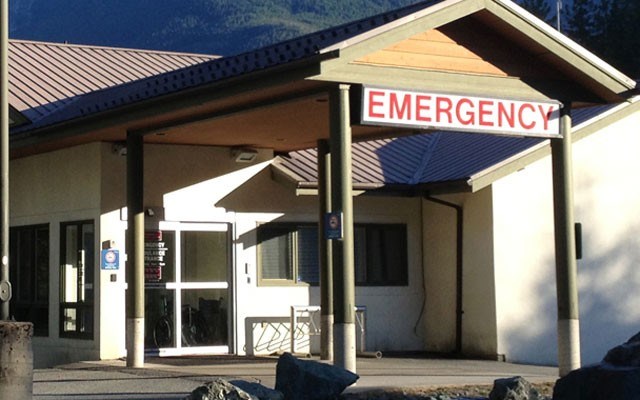The British Columbia Nurses Union (BCNU) says nurses at the Pemberton Health Centre do not feel safe, despite recent upgrades designed to enhance security.
"Nurses still do not feel safe at the worksite. There's a number of additional security measures that were promised that still need to be implemented," said BCNU vice-president Christine Sorenson.
These include reflective window film and a concrete divider that would prevent cars from driving into the clinic, said Sorenson.
Sorenson also called on Vancouver Coastal Health (VCH), which oversees the clinic, to hire an overnight security guard.
"The nurses want an overnight security guard who is there from 8:30 at night to 8:30 in the morning, when the nurses are on call."
In an e-mailed comment, VCH said that it is "working with BCNU to address concerns to keep the nurses and patients safe at the clinic."
The health authority has implemented a number of new security measures, noted a VCH representative.
The most significant change is a new requirement that overnight nurses, who work on an on-call basis, work in pairs. It had been common nurses to work alone at the centre.
VCH has also installed new security glass between the patient area and a closed-off section of the centre where the nurses are stationed.
A new (and stronger) metal door that separates the spaces will also be installed mid-month, said the representative.
VCH has an agreement with a security company, which remotely monitors the site and can alert nurses of any dangerous situations.
The addition of a security guard, however, remains an important priority for the BCNU.
During a presentation at the Village of Pemberton (VOP) Committee of the Whole meeting on Tuesday, July 25, Karin Olson, chief operating officer for VCH, outlined the rationale for the authority's decision to put its resources into having an additional nurse rather than hiring a full-time security guard.
"None of the security guards are allowed to touch people... That's why we went with a second nurse. Because the security guards themselves are not able to do any take-downs, and they created an extra barrier for the nurses and patients to retreat," said Olson.
There is more value in having a second nurse in conjunction with enhanced security measures than hiring a full-time security guard, said Olson, who noted that the clinic only sees around 300 overnight patients a year.
For Sorenson, the decision is unacceptable. "Nurses are not security guards — nurses are nurses. Violence is not part of a nurse's job," she said.
"(Security guards) often have conflict resolution and anger management training. They can remove items from the room that could be used as weapons."
"They can also help talk people down. And if necessary, they can close off a room so the patient will be by himself or herself."
Nurse safety is a major priority of the BCNU, which is making a province-wide push to improve safety for staff.
"My question is how much do we value the health and safety of our patient and our nurses?" said Sorenson when asked about cost issues.
According to a 2015 Workplace BC report, between 2006 and 2015 health care and social services workers accounted for 61 per cent of violence-related claims.
The Pemberton Health Centre security upgrades follow a February incident in which an allegedly intoxicated teenager entered the closed-off section of the clinic, frightening a nurse who was with a patient.
The incident prompted the nurse to take a leave of absence.




